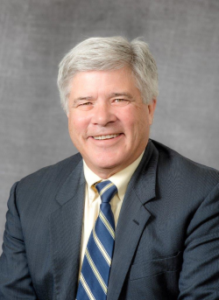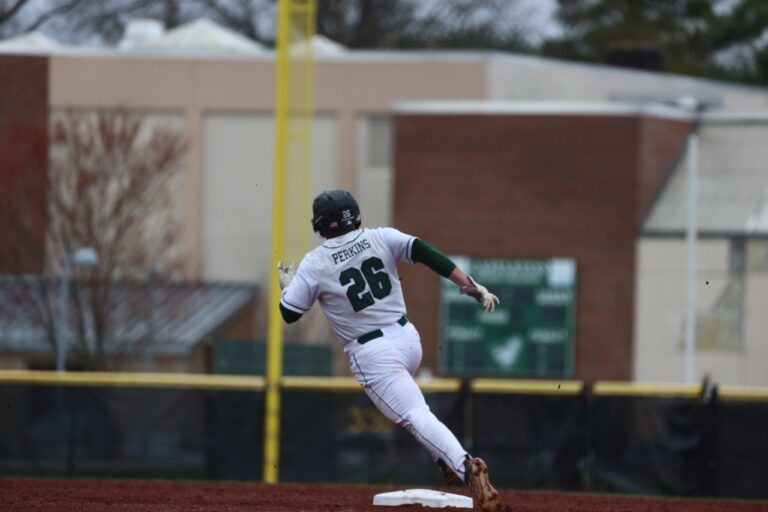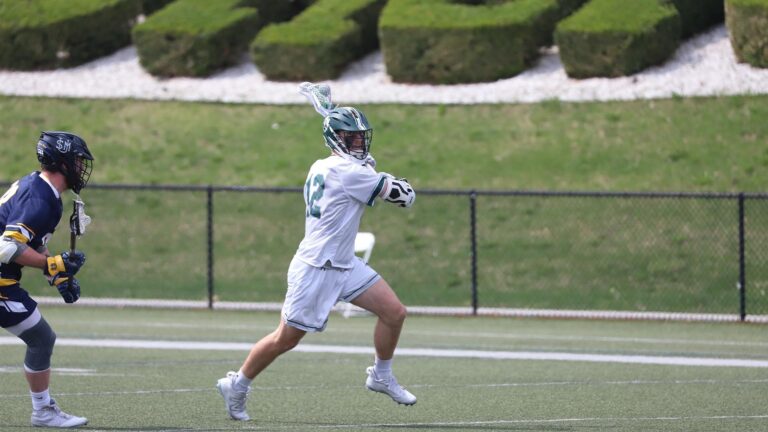Interim president Smith details goals

Mike Smith is the interim president of Vermont State University after the recent resignation of Parwinder Grewal. The former Vermont Agency of Human Services secretary recently spoke with The Spartan about his new role.
Q. So can you tell me how you came to be appointed to this role and what made you say yes to it?
A. Well, it was within the same week that the announcement came that the board was going to be changing leadership at Vermont State University. So I got a call, (they) asked if I would be interested, and I said yes. And the reason I said yes is because the success of Vermont State University and the campuses that encompass Vermont State University, or are Vermont State University, I think that’s important for the state of Vermont, not only for the state of Vermont, it’s important for the communities within the state. It is important for the institutions themselves. It’s also important for the current and future students. So I thought it was important enough to come out of retirement and say yes to this position for a temporary time.
Q. What’s it been like to visit all the different campuses recently?
A. I’ve not only been visiting campuses, I’ve been into the dining halls. I plan to try to stay in the residential dorms as well. I did stay at VTC. Now, it was a residential director’s room, but I did stay in the dorm. I just think it’s important to understand how our students are both living, eating and enjoying the campus life and you can’t do that from afar. My objective is to stay on every campus that has a residential life facility.
Q. What do you feel is the most important part of the job as president of the university and what does it mean to you?
A. I think there are two things. One is to make sure we don’t get distracted with issues that take our focus off from transformation. We have some things that we have to do coming up to July 1st, that’s an important date as we transition to Vermont State University. So, not take our focus off that and any distractions that are coming up as a result as we move forward. I’ve only been on the job a week, but at the same time, I’ve visited all campuses. I’ve talked to a lot of students, I’ve talked to a lot of faculty, I’ve talked to a lot of staff, and the one thing that really impresses me is the passion for this system, the Vermont State University, the passion on campuses, around the state, the passion to do a good job. That’s something that hasn’t gone away and it doesn’t seem like it’s ever going to go away, which is just uplifting for me.
Q. That’s a lot in a week, but yeah, that’s been my experience on Castleton’s campus, everyone’s very passionate.
A. Both of my parents are from Castleton. I remember at 3 years old, I was walking a much smaller Castleton campus, at the time. That was in the ’50s, by the way, I think it was called Castleton Teachers College at the time.
Q. How do you feel your past positions, in both the public and private sector, have prepared you for this role as president of Vermont State University?
A. The agency of Human Services is a huge agency, almost 4,000 people, a budget of over $2 billion so it’s a huge agency that deals with people, the most vulnerable Vermonters and does it in a compassionate way and that is important. It has always been important to me. I was also secretary of administration here in the state. The Secretary of Administration does all the state operations, you know, budget, all that sort of thing. So that has prepared me, as well as all those other positions that I’ve been in either in the private or public sector, in the private sector as president or CEO of a medical records company and a telecommunications company. It just gives me a broad outlook, in terms of how things should be done, and how you can be successful. I’ve had years of experience, learning sometimes the hard way, about what works and what doesn’t work. And these positions have helped me sort of hone those, that skill level to do things in a way that hopefully will make us successful.
Q. Of course there was a lot of controversy, but can you tell me anything about how the decision to rescind plans for the libraries and athletics came about?
A. I don’t know how the decisions came about and I didn’t look, I didn’t go back. I just looked forward, so I can tell you about the decision looking forward. First of all, they were major distractions and I just thought there was a better way to look at these in a different way. I don’t think anybody disagrees that part of our collection needs to be streamlined. Some of our collection needs to be digital, but what I want is the process to work from the ground up, so that we do not dictate from the top down. And what that will allow us to do is find those solutions to what is the right mix. In terms of digital versus physical books, what is doable? In what timeframe is it doable? There’s no doubt in my mind that we will have a portion of our collection digital, that is going to be a fact because the world is moving in that direction across the country, but at the same time, what’s the right mix? In terms of athletics, I didn’t feel I had enough information to make the decisions that were there. Athletics have a very prominent role in retention, for example. So what were the retention rates in these various programs? So I decided to give it three years so that we get the information we need. And my goal is that we always have a lot of athletics but you know, let’s have the information and the data that we need in order to support or not support where we’re going in the future.
Q. Name some future plans for the university that you’re excited about?
A. Well, I’m very excited about making sure that we finish the transformation process that began long before us. I want to make sure that we get to where we need to be by July 1st, and so I’m excited about moving forward and looking at ways to make sure that all of our institutions are thriving. I think we need to make sure that they’re all thriving because this is important for the state of our communities, our institutions, and the current and future students.
Q. And finally, what would you like students to know about you?
A. You know, I do believe in communication. One of the things over the pandemic that we did here in Vermont was provide enough information that people felt assured in the directions that we were going in. As you perhaps know, we led the nation in terms of the pandemic response, and the Agency of Human Services was a lead agency in that response. The governor was a great leader in terms of the pandemic response, but one of the things I learned out of that is, make sure that people understand what you’re doing and the reasons why you’re doing it. That’s a motto of mine to make sure people understand what you’re doing and why you’re doing it. And I’ll tell you, if you put it out there clearly, they will understand and I’ve learned that over the years. And I think it’s important, so, transparency, and communication and deliberation are three of the key factors that people should know about me. I’m positive that students, faculty and staff will respond if we can articulate the direction and the facts as we move forward.








